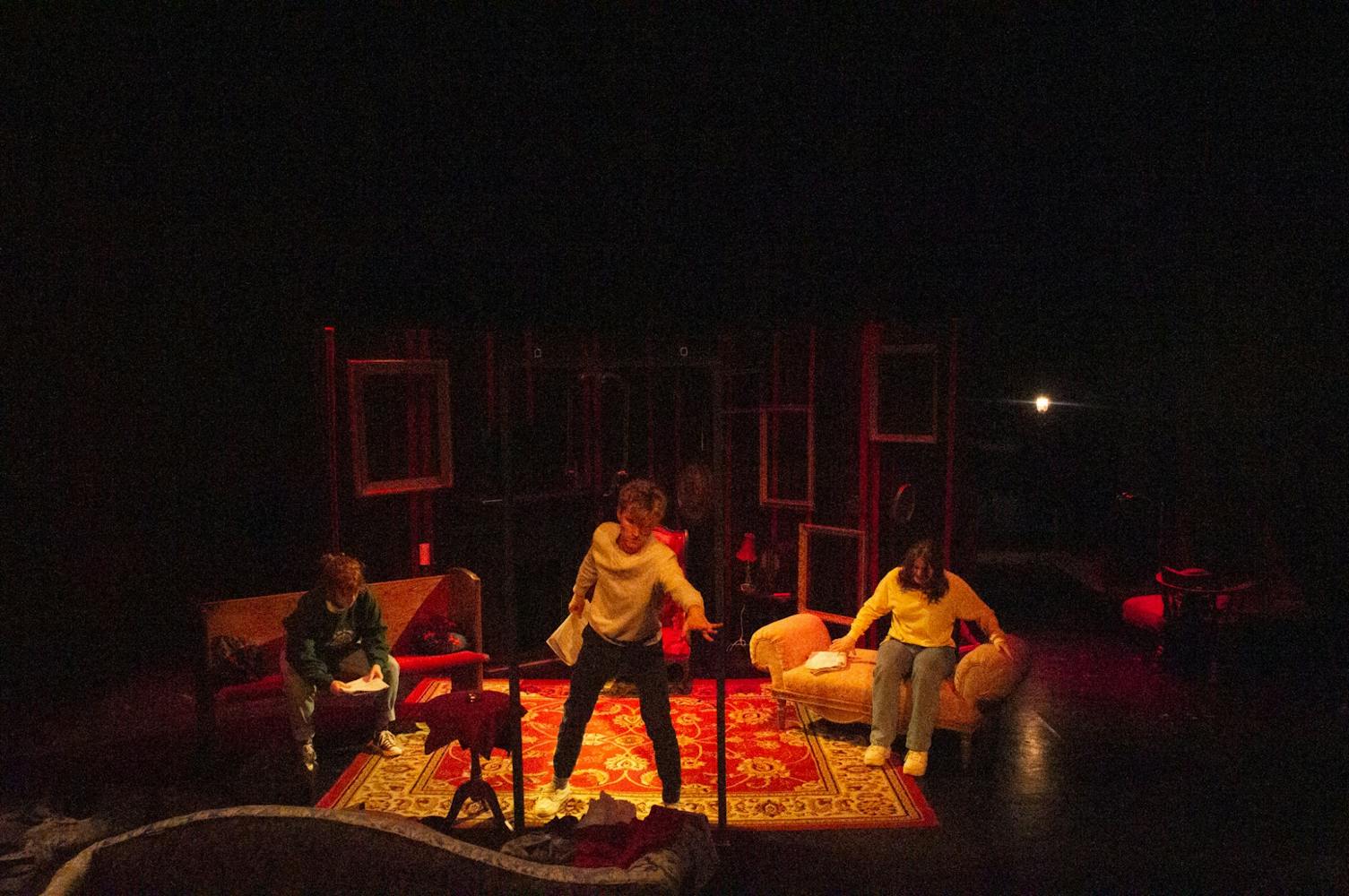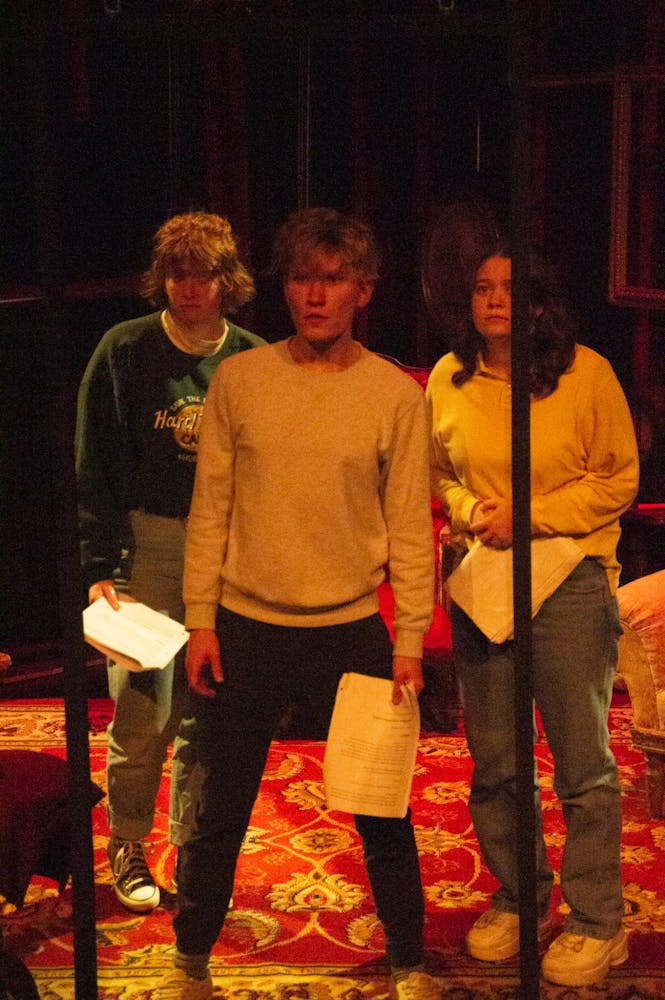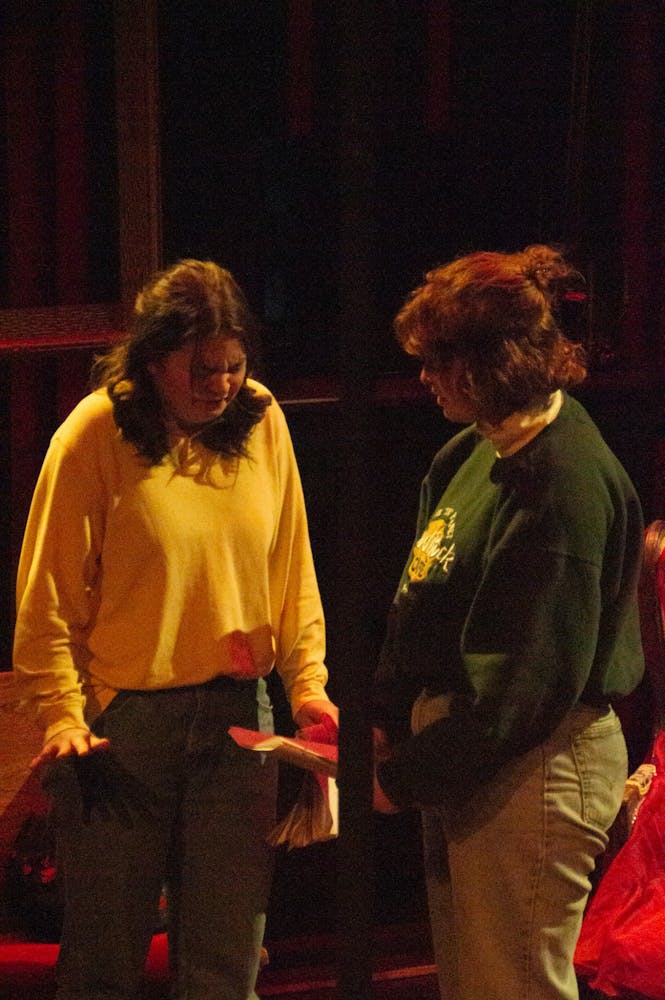The Undergraduate Theatre Association’s (UTA) production of the French drama “No Exit” ran Oct. 27 to 30 in Vilas Hall’s Hemsley Theatre. This phenomenal, eerie experience of a play exhibited the capability of University of Wisconsin-Madison students and a hunger for university-supported extracurricular theater programs.
From entering the lobby to viewing the shocking end of the performance, the production encapsulated the idea of the unknown after death. The blocking skillfully created the illusion of diversity on the small stage; the set design perfectly portrayed the discomfort and awkwardness felt by the characters throughout the entire play; the movements and line deliveries by actors revealed the deep understanding of characters and the dynamic relationships between them.
Such an impressive production might suggest student-produced theater is heavily supported by the University of Wisconsin-Madison’s theater department budget, but that is far from the case. Speaking to five “No Exit” team members revealed large issues facing the theater department in relation to student-led productions.
Each of them pointed out the value of collaboration not only in the development of the production but down to the specific acting choices made within scenes. Compared with more professional theater spaces where the relationships among project members are harshly defined, student theater is a place where group work is encouraged. Junior Megan Tennessen, who played Estelle Rigault, said the dynamic among the group made the show feel like a welcoming place to showcase creativity freely.
“It feels less like a power structure, more of a collaboration and more comfortable to say what we needed,” said Tennessen.
Others including Director Malcolm McCanles echoed this sentiment.
“A lot of the ideas that I've gotten from this show have not come from me, but from the actors, [the stage manager] or the designers who said something that's a really great idea, and I feel like we've been able to take all of these ideas and put them into one thing that's really amazing,” said McCanles.
But because of budget changes in the theater department, these collaborative efforts are becoming harder to create. When asked about the process of putting on the show, McCanles described the obstacles he and the team had to maneuver.
“When I started this production [in fall 2021], I realized how many hurdles there were to make it happen,” said McCanles. “There was so much work just to get to the point where we could ask permission to do so, and we needed to have so much stuff ready. And then it turns out that there would only be one student production this semester, and we're very lucky to have gotten that.
“It makes me feel very sad that we also took that opportunity away from a bunch of other students because we weren't the only people who applied to do it,” McCanles continued. “And I don't think we were more qualified than any of the other students.”
The year’s labor of work only allowed the students to run the show in front of an audience four times due to budget constraints. The production was given $300 from the university and $600 from UTA’s own funds to cover the cost of sets, costumes and copyright for the script.
Compared to the prior year’s two shows produced only by the Undergraduate Theatre Association, the funding of a singular student production across all student theater groups caused a sharp decline in the number of students able to participate in theater outside of the classroom.
“I think we should have more student produced theater than theater that's produced by university faculty,” said McCanles.
As there are only a handful of UW mainstage theater productions, the competition to design, manage and act in a production is extremely strong.
“I think we do have a very good department here in terms of classes and productions, but every student should feel empowered to create because that is what theater is at its heart,” said McCanles.
The staff of the theater department still garners appreciation and there is an understanding of the significance of the lessons they teach. The change the group wants to see lies in adding to the program rather than switching classes out.
“I think that ultimately it comes down to a restructuring of education,” said McCanles. “Theater as it's taught has a power structure behind it. And we are taught, in most theater classes, the hierarchy which has been necessary for professional theaters to thrive. But I do think at a university level, theater should be taught in a much more collaborative manner.”









